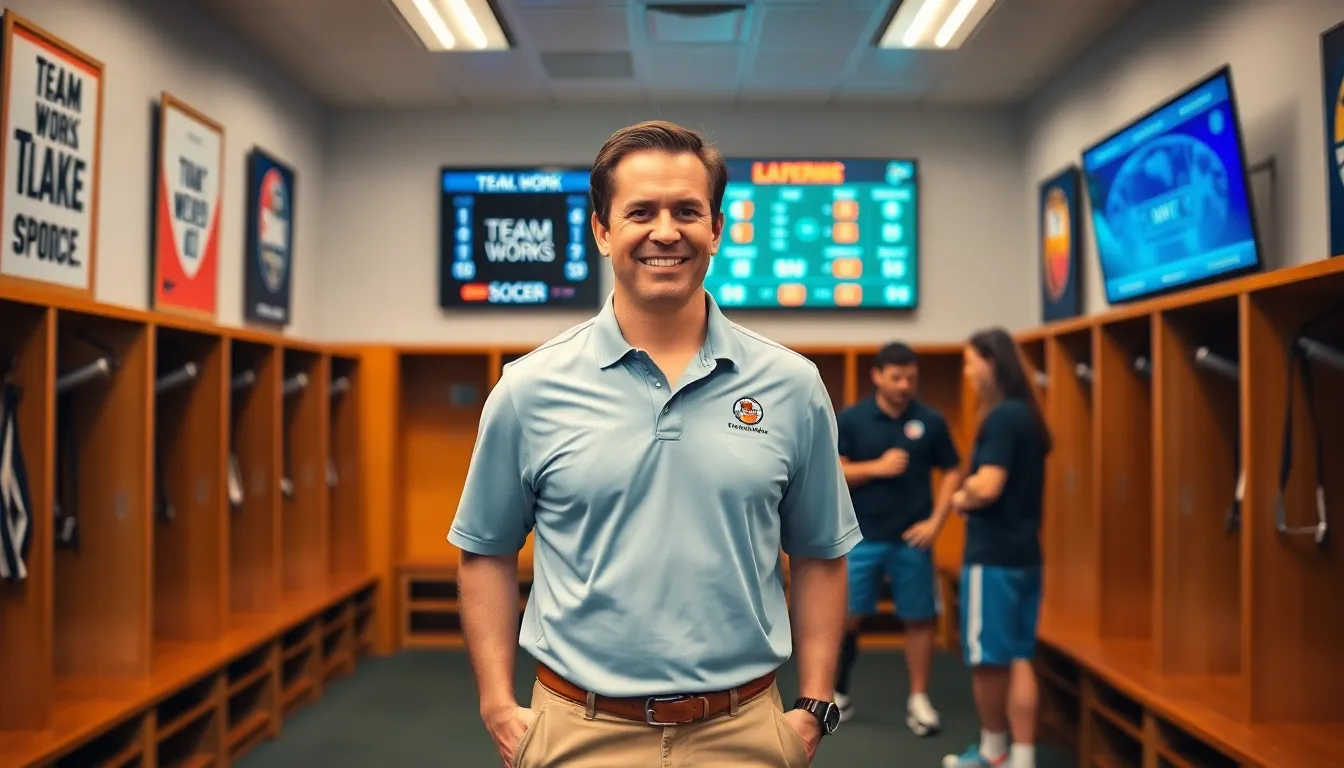In a world filled with intense competitive pressures, the laid-back charm of Ted Lasso gives us a refreshing take on leadership. Hailing from a small-town American football background, he steps into the intense arena of English soccer, armed with optimism, humor, and an unwavering belief in his team. While it’s tempting to think he’s just a cheerleader with a funny mustache, Lasso’s leadership style carries profound lessons that resonate across industries. So, if you’re ready to swap traditional tactics for a boost of positivity, grab your biscuits and let’s jump into the leadership lessons Ted Lasso brings to the table.
Table of Contents
ToggleThe Importance of Empathy in Leadership

Empathy might just be Ted Lasso’s superpower. He doesn’t just see his players as athletes: he views them as people with their own fears, dreams, and vulnerabilities. Lasso exemplifies that effective leaders must engage with their teams on a personal level. When a player struggles, Ted is quick to ask how he can help, proving that leadership is about connection.
Studies back this up. Empathic leaders often cultivate more productive environments. They foster trust, respect, and mutual understanding, ingredients essential for high-performing teams. Ted’s approach leads to an atmosphere where players feel valued and secure, encouraging them to perform at their best.
In practice, leaders should regularly check in with their teams, not just about work but about well-being. This simple act can significantly boost morale and solidify relationships. Remember, people are more likely to go the extra mile when they feel seen and heard.
Building a Positive Team Culture
A positive team culture isn’t just a fancy phrase: it’s a cornerstone of successful leadership. Ted Lasso understands that winning isn’t everything, how you build relationships within a team matters just as much. He strives to create a supportive and inclusive environment where members celebrate each other’s successes.
In the world of Ted’s fictional AFC Richmond, there’s a sense of camaraderie that inspires players to collaborate. This dynamic transforms the atmosphere, making training sessions more enjoyable and fostering open lines of communication. Employees echo this in real workplaces. Cultivating joy not only improves performance but also retention. It’s hard to leave a place where your successes are rooted in shared purpose.
To nurture a positive culture, leaders should focus on team-building activities, recognition programs, and open dialogues. When everyone shines, the whole team wins.
Effective Communication: Listening and Sharing
Communication in the workplace often falls short, leading to misunderstandings and resentment. Yet, Ted Lasso stands out as a master communicator. He listens more than he talks, emphasizing active listening to truly understand the needs of his team.
For instance, when he actively seeks players’ opinions on strategies, it fosters a sense of ownership that’s crucial for success. Also, Lasso shares his thoughts in a way that resonates positively, whether through witty one-liners or heartfelt conversations. His ability to break down barriers through humor changes the tone of discussions.
Effective communication encompasses both speaking and listening. Leaders should strive to do both. Using one-on-one meetings to engage with team members helps build trust. Encouraging openness allows teams to address issues head-on, facilitating quicker resolutions.
Embracing Vulnerability and Authenticity
Ted Lasso isn’t afraid to show his vulnerable side, defining authenticity in a world that often values a façade. By openly sharing his fears and insecurities, he lets his team know that it’s okay to be imperfect.
Research indicates that leaders who embrace vulnerability create an environment where team members feel safe to express themselves. When employees face challenges, they’re less likely to hide them in a supportive atmosphere. In many ways, vulnerability can be a leadership strength, it fosters connection and encourages support.
Leaders should consider sharing their own challenges and lessons learned. Encouraging teams to open up about their fears cultivates an authentic work environment, strengthening bonds and driving performance.
Cultivating a Growth Mindset
Ted Lasso embodies a growth mindset. He sees every setback as an opportunity to learn rather than a failure. This perspective is crucial: when teams focus on growth rather than fear of failure, they push the boundaries of innovation and creativity.
In every match, Lasso reminds his players that mistakes are part of the journey. This approach breeds resilience. Teams become agile and adaptable, qualities crucial in today’s fast-paced environment.
Leaders should encourage this mindset by setting development goals and offering resources for personal and professional growth. Regular feedback helps frame challenges as learning opportunities, keeping spirits high and performance sharp.
Leading by Example: Actions Over Words
Actions often speak louder than words, and Ted Lasso knows this all too well. He walks the walk, demonstrating the values he preaches. Whether it’s showing up ready to support his team or treating staff with respect, Lasso exemplifies what it means to lead by example.
His consistent behavior reinforces trust, team members come to see him not just as a coach but as a role model. They’re more inclined to emulate the same commitment to the team and its success.
To lead effectively, one must embody the qualities they wish to see in their team. Consistency, integrity, and hard work go a long way toward establishing respect and loyalty.








